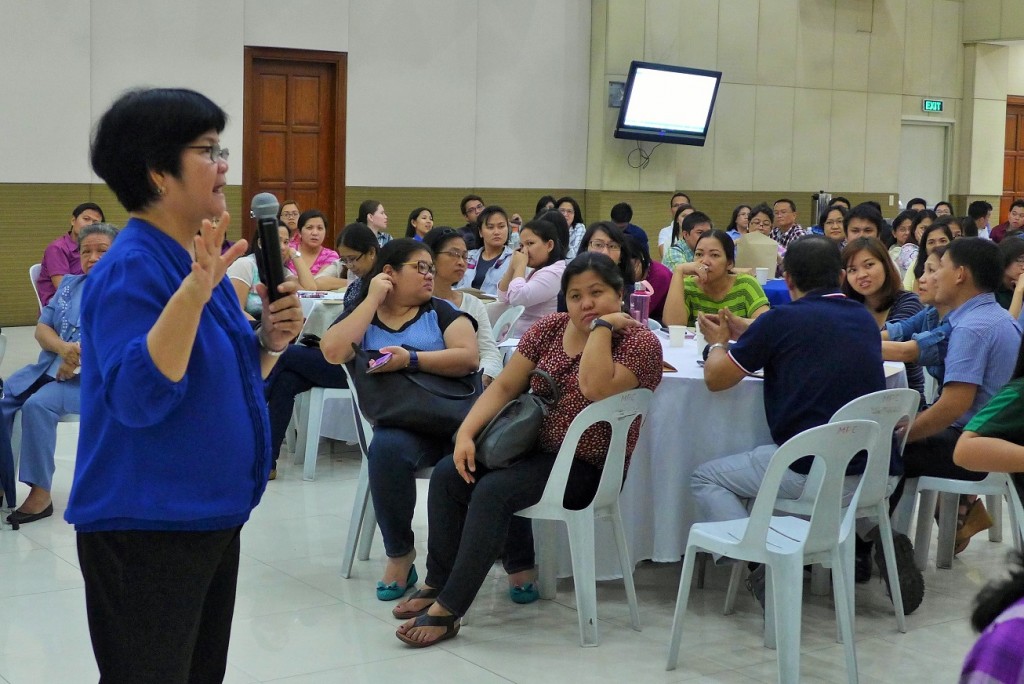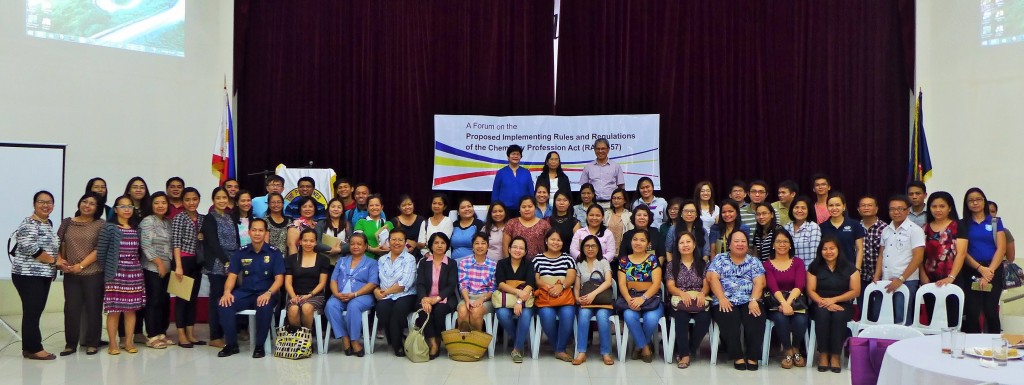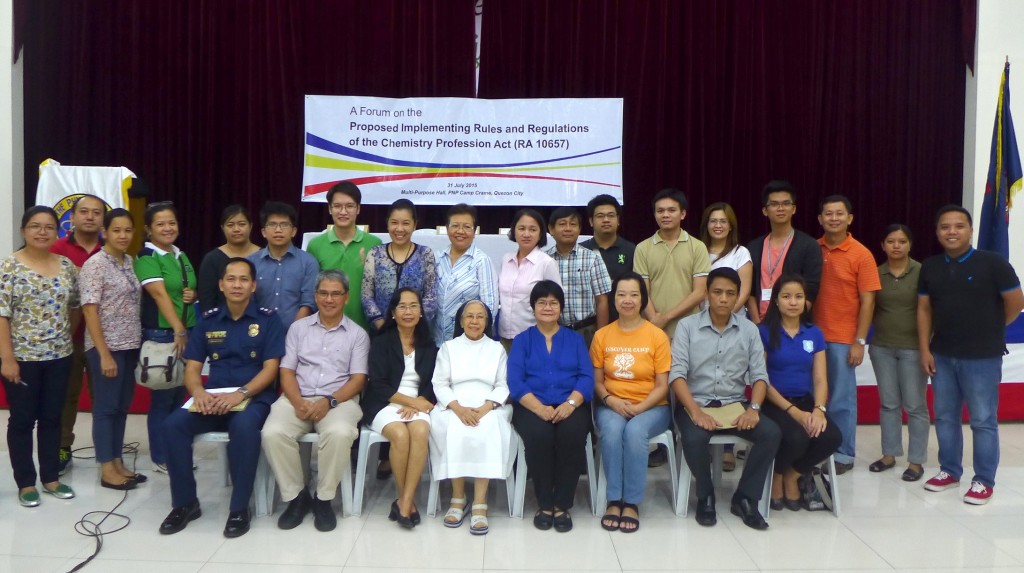Text by Nick Tan; Photographs by Dr. Toby Dayrit and Edna Mijares
Chemistry professionals in the academe, government, and industry sectors attended an ICP-sponsored forum on the Proposed IRR of the recently passed Chemistry Profession Act (RA 10657) held at the PNP Multi-Purpose Center in Camp Crame, Quezon City last July 31. ICP board members Dr. Toby Dayrit and Ms. Edna Mijares, as well as PRC Board of Chemistry Chair Dr. Dory Resurreccion served as facilitators of this event.
 PRC Board of Chemistry Chair Dr. Dory Resurreccion explaining some of the provisions of the proposed IRR of RA 10657
PRC Board of Chemistry Chair Dr. Dory Resurreccion explaining some of the provisions of the proposed IRR of RA 10657
 Facilitators and participants of the session for the government and industry sectors
Facilitators and participants of the session for the government and industry sectors
 Facilitators and participants of the session for the academe sector
Facilitators and participants of the session for the academe sector
The ICP and Board of Chemistry continue to welcome comments and suggestions on the proposed IRR. You may download the comment form at this link (Deadline of submission: August 7). Instructions on how to send back the said form is included in the file.
